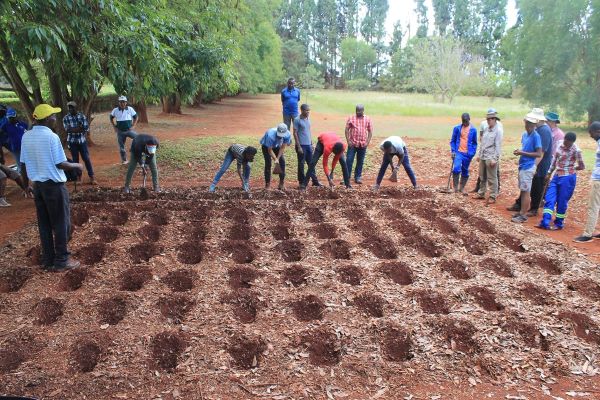By Lawrence Paganga
An estimated 20 000 urban farmers from Bulawayo will this 2021/2022 summer farming season receive agricultural inputs from the government.
The farming inputs are distributed under the Climate-Proofed Presidential Inputs Scheme better known as the Pfumvudza/Intwasa.
The government concept introduced two years ago, initially targeted to issue 2,3 million farmers in rural and small-scale areas with inputs to produce cereals, oilseeds, and legumes.
The scheme excludes commercial farmers.
Each eligible farmer in Bulawayo, Zimbabwe’s second capital, will receive 10kg maize, 5kg, sorghum, 2kg, pearl millet, 5kg soya beans, 2kg sunflower, or castor bean, 5kg beans, cowpeas, or round nuts.
The Agritex extension officer for Bulawayo, Treggie Mpofu confirmed 20 000 urban farmers in the city would in the coming farming season receive inputs from the government for the first time.
For one to receive the farming inputs, a farmer has to go through training and prepare the land first.
“Most of the farmers in both the eastern and western suburbs have started preparing their land. We are targeting 20 000 households in all 29 wards in Bulawayo,” said Mpofu.
“We will only distribute inputs to those who have finished the land preparation. We have had an overwhelming response from farmers and it appears seeing higher yields from Pfumvudzwa/Intwasa plots during the past season, most of these farmers have adopted the technique this season.”
Other beneficiaries under the programme are collective farming clubs and churches.
To help achieve this ambitious goal, the Food and Agriculture Organisation of the United Nations (FAO) and Foundations for Farming (FfF) have been training government extension officers to the Pfumvudza/Intwasa concept.
The main goal is to help food self-sufficiency in Zimbabwe.
It is hoped that the project will address the problems of low levels of productivity and production, making the country’s farmers and households more resilient to climate shocks and ultimately ensuring food security in Zimbabwe.
The scheme also offers real potential for commercialisation by encouraging smallholder farmers to produce surplus food to earn a regular income.
What makes Pfumvudza unique is the size of the plot used: at just 16m x 39m the plot is small enough to easily prepare, small enough to manage with mulch, small enough to weed, and even small enough to water by hand with harvested rainwater in the event of a mid-season dry spell or drought.








